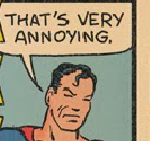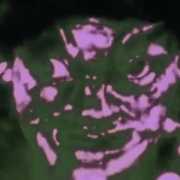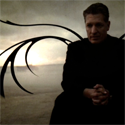|
I'm a 30 year old Australian male with a pretty minor lisp. Most people don't notice it until they've spent a significant amount of time with me. In my line of work, I've been speaking at conferences and panels quite a lot lately. In watching the video recordings, I'm pretty self conscious about my pronunciation of anything with an 'S' in it. I feel like it's getting a little worse as I get older, but perhaps I'm just getting lazier. I'm also planning on providing an oral narrative to some YouTube videos in a few months, but this is the only thing holding me back. Are there any good resources online for solving my lisp, or will I need to visit a speech pathologist?
|
|
|
|

|
| # ? Apr 16, 2024 23:01 |
|
I too am interested in this. Mine is minor enough that nobody has ever mentioned it, but I do have a slight lisp. I can't actually even hear it when I talk but if I'm listening to a recording its slightly noticeable. I thought it might be possible to get rid of if I concentrate hard while talking but its not something I can consciously change. Perhaps caused by a dental issue? Not sure.
|
|
|
|
|
I don't know much about speach pathology but I would imagine a speach therapist might help or you could find some basic speach exercises to try. From what I understand it mostly involves reteaching your mouth how to form certain sounds ( assuming you don't suffer a physical limitation causing the lisp, but I don't know of it would get worse over time in that case). That said if you're concerned about other people hearing a lisp when you speak, I don't think anyone really cares that much these days. I work with people with stutters and such and people around here are much more interested in content than delivery. Is not like grade school where kids giggle hearing a lisp or something. YMMV on that front, though. I'd Google around and see what kinds of speach exercises can be tried before dropping coin on a specialist.
|
|
|
|
Go to a speech therapist. I had a similar problem growing up, and having a professional give me subjective, instant feedback was a godsend. One hour of it was better than months of doing mouth exercises on my own.
|
|
|
|
For the lisp, a speech therapist is probably the way to go. But for general improvement in public speaking, you could try joining a speaking club like Toastmasters. http://www.toastmasters.org.au is the Australian website. I am not a member and have never been to one of their meetings, but it looks like their whole deal is to give speeches and then get feedback from the other members.
|
|
|
|
I'm also an Australian and used to have a lisp with S as well, but when I was about four or five. I don't remember if my parents ever officially took me to a speech therapist, but I do remember that I used to have to practise tongue-twisters like "six silly swans swimming in the Swan River" (bonus points for working out where I'm originally from). If your lisp is only minor, I'd say maybe give that kind of thing a shot since it worked for me unless it really bothers you, in which case yeah going and seeing a speech therapist/pathologist (no idea if there's a difference) is probably a good idea.
|
|
|
 I had a pretty bad lisp up till about 20 and sorting that poo poo out is one of the best things I've done. The details will depend on what type you've got - mine was interdental iirc, which means I made my S sounds by sticking my tongue between my teeth instead of using the ridge at the top just behind them. Doing it properly feels weird at first, the way I learned to do it was by using the tongue position for 'T' and transitioning by going from 't-t-t-t-t-t' to making a hissy 'ssss' with the same position. Obviously you have to practice S in isolation, then move on to easy words where the S is at the beginning, then to harder words before finally using it in short phrases. Practice beats everything else as usual, and a speech therapist helped me a lot. even just a friend can help you though, it's really easy at first to get your tongue placement slightly wrong and make a sound that's too hissy or kind of whistles and any random person can pick up on that better than you (it's all gonna sound/feel weird to you). You can't beat speech therapy but practicing alone can make the whole thing much faster. Make sure you check beforehand that the therapist can help with lisps, they seem to deal with stammers or people recovering from strokes more often. resources: I found this here booklet useful, the therapist was surprised how far along I was just from working through this alone.
|
|
|
|
|
second on toastmasters. they helped me conquer my fear of public speaking. go to a meeting (you don't have to be a member to go, though you WILL want the materials) and you'll come across dozens of success stories. it's a good source of actually useful speech feedback, and training of basically good speech hygiene (all speeches are timed. someone's job is counting up the stammers people say. and so on). the lisp.. idk. I had a lisp when I was a kid and my mum sat me down and made me run drills repeatedly. it helped. little larry lamb likes licking luscious lemon lollipops, lol. biggest advice I can say is listen to recordings of yourself in a close feedback loop. record yourself saying a word ten times. play it back. try it a different way. play it back.
|
|
|
|
Just chiming in to say that I had a lisp as a child, got speech therapy for a few months in school, stopped lisping by the end of the therapy and have been lisp-free for 30 years.
|
|
|
|
Same here. Couldn't do S or SH until I was about 8, but a few months of speech therapy cleared it up. I still sometimes find myself mimicking words I just said back to myself to make sure I formed the right sounds, because that was an exercise I did, and that was like 20 years ago. Also, gently caress forever the person that decided the word that means 'Can't say S' has an S in it.
|
|
|
|
Speech Therapist here. "Lisp" issues with "s" can be a combination of a motor program that for whatever reason during childhood was acquired to produce a different s sound than your typical English s and/or the result of screwed up dental/jaw stuff. Most "s" issues I've seen are the result of tongue thrust or an "s" being produced in-between the teeth rather than against the alveolar ridge (bump just above the back end of your top teeth). Think of a "motor program" as motor memory for a particular sequence of actions akin to what is required to throw a ball. There's a ton of neurons that have to fire and a LOT of small muscles that have to move to produce an "s". For kids, it's pretty easy to fix (usually) since all dental stuff is in flux, and kid brains are just overall much more malleable to change. You can sort of overwrite the old motor program with articulation exercises and practice focusing on tongue placement. With adults, success will vary but it's still something that can be tweaked. A lot of therapy will be focused on finding correct placement, increasing awareness of where/when the error occurs (basically teaching you some linguistics 101 and acoustics stuff), and then ideally building up to a point where you can somewhat unconsciously control for it on your own during spontaneous speech. You might find that the best therapy is just having a specialist with a finely tuned ear there that can instantly critique the ever-living gently caress out of you in a very comfortable environment. Ask your doc for a referral to a Speech Therapist and find one that specializes in "Articulation Disorders". Also consider getting an opinion from your dentist about any structural abnormalities and their severity. And yes, Speech Therapist=Speech Pathologist In the US, it's SLP. In the UK/Australia/EU, it's SLT. Masters degree at a minimum but the profession is heading towards requiring either a Ph.D or clinical doctorate depending on your specialty.
|
|
|
|

|
| # ? Apr 16, 2024 23:01 |
|
Avalanche posted:Speech Therapist here. Just seconding this: it's definitely worth getting your lisp diagnosed as a definite problem with articulating the letter 'S', rather than a dental issue (as it is in my case). I may finally, with the dental treatment I'm currently having, end up with a reduced lisp, but no speech exercises could really get rid of it, as the underlying cause was air whistling through a gap between two oddly-formed teeth. Tequila Sunrise posted:Also, gently caress forever the person that decided the word that means 'Can't say S' has an S in it. As a fellow owner of a minor lisp, I've long suspected that there must be a rule, when naming speech impediments, that anyone who has it should also have trouble naming it. 'Stammer' is particularly rough on people who actually have a stammer, and the word for the inability to pronounce 'R' correctly is named afted the Greek letter R (rho) -- rhoticism. Jonathan Ross, probably the most famous Brit to have this impediment , has built a lot of his persona as a TV and radio presenter around it.
|
|
|














